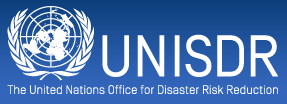 21 October 2014: The Preparatory Committee of the Third UN Conference on Disaster Risk Reduction’s (DRR) has issued the Zero Draft of the post-2015 framework, prepared by the Committee’s Co-Chairs, Päivi Kairamo, Finland, and Thani Thongphakdi, Thailand. The Zero Draft, which builds on the Hyogo Framework for Action 2005-2015 (HFA), will be discussed at the PrepCom’s Second Session, in November 2014. The final version is expected to be adopted at the March 2015 Conference.
21 October 2014: The Preparatory Committee of the Third UN Conference on Disaster Risk Reduction’s (DRR) has issued the Zero Draft of the post-2015 framework, prepared by the Committee’s Co-Chairs, Päivi Kairamo, Finland, and Thani Thongphakdi, Thailand. The Zero Draft, which builds on the Hyogo Framework for Action 2005-2015 (HFA), will be discussed at the PrepCom’s Second Session, in November 2014. The final version is expected to be adopted at the March 2015 Conference.
The draft aims to achieve “substantial reduction of disaster losses, in lives, and in the social, economic and environmental assets of persons, communities and countries” over the next 20 years. It outlines four priority actions: “understanding disaster risk; strengthening governance and institutions to manage disaster risk; investing in economic, social, cultural and environmental resilience; and enhancing preparedness for effective response and building back better in recovery and reconstruction.” For each priority area, the draft includes recommendations at the national and local levels, and the global and regional levels.
“A proposed new feature of the post-2015 framework is the inclusion of global targets to measure achievement,” said Kairamo, explaining that many stakeholders advocated for such targets. She said the framework also includes “principles to guide action such as that reducing disaster risk is primarily a state responsibility and managing disaster risk must be consistent with respect for human rights.”
The draft aims to ensure coherence with the post-2015 development agenda and promote a more people-centered approach, according to Thongphakdi. He said, “above all we recognize the fact that we have been presented with a unique opportunity to ensure coherence across the concurrent post-2015 processes on sustainable development, climate change and disaster risk.”
The draft also recognizes the need to be more accountable for risk creation. It recommends political leadership “at every level in every country” to reduce existing disaster risk, prevent disaster risk creation and strengthen resilience.
The draft also recommends, inter alia: integrating key development areas, such as agriculture, ecosystem management, education, health, housing financial and risk transfer mechanisms and public awareness; integrating disaster risk management (DRM) in business practices and models; and basing investment decisions on risk considerations. The draft includes specific recommendations for academia, civil society, the private sector and others. [UNISDR Press Release] [Zero Draft]